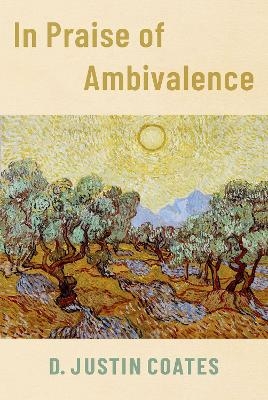
In Praise of Ambivalence
Seiten
2023
Oxford University Press Inc (Verlag)
978-0-19-765239-8 (ISBN)
Oxford University Press Inc (Verlag)
978-0-19-765239-8 (ISBN)
Ambivalence is a form of inner volitional conflict that we experience as being irresolvable without significant cost. Because of this, very few of us relish feelings of ambivalence. Yet for many in the Western philosophical tradition, ambivalence is not simply an unappealing experience that's hard to manage. According to Unificationists--whose view finds its historical roots in Plato and Augustine and is ably defended by contemporary philosophers such as Harry Frankfurt and Christine Korsgaard--ambivalence is a failure of well-functioning agency. The reasons for this, we're told, are threefold. First, it precludes agents from resolving their wills in a way that is necessary for autonomy. Second, it precludes agents from fully affirming their live and, in particular, from fully affirming the choices they make. As a result, ambivalence robs them of an important source of meaning. Finally, ambivalence causes agents to act in self-defeating ways. In so doing, they act without integrity. Ambivalence is thus seen as a threat to a trio of important agential goods, and as a result, it imperils the best forms of human agency.
Against the Unificationists, D. Justin Coates argues that ambivalence does not preclude volitional resolution or normatively significant forms of affirmation. Nor does it guarantee self-defeat. Consequently, ambivalence as such is no threat to autonomy, meaning, or integrity. In assessing these arguments, ambivalence is also revealed to have an important role in securing the very goods that unificationists contend it undermines. The reason for this is that each of these goods requires the agent to be normatively competent. But normative competence itself, Coates argues, often leads agents to be ambivalent. The best forms of human agency are therefore shown to be not only compatible with ambivalence but as regularly requiring it. Ambivalence is thus not a volitional defect, but a crucial constituent of well-functioning agency.
Against the Unificationists, D. Justin Coates argues that ambivalence does not preclude volitional resolution or normatively significant forms of affirmation. Nor does it guarantee self-defeat. Consequently, ambivalence as such is no threat to autonomy, meaning, or integrity. In assessing these arguments, ambivalence is also revealed to have an important role in securing the very goods that unificationists contend it undermines. The reason for this is that each of these goods requires the agent to be normatively competent. But normative competence itself, Coates argues, often leads agents to be ambivalent. The best forms of human agency are therefore shown to be not only compatible with ambivalence but as regularly requiring it. Ambivalence is thus not a volitional defect, but a crucial constituent of well-functioning agency.
D. Justin Coates is an associate professor of philosophy at the University of Houston. He specializes in moral philosophy and philosophy of action, and has published on issues related to blame, moral responsibility, reasons, and ambivalence.
Acknowledgements
1. Introduction
Part I - A House Divided
2. Ambivalence
3. Resolving the Will
4. Affirmation and Ambivalence
5. Ambivalence without Self-Defeat
6. Ambivalence and Integrity
Part II - A Wise Inconsistency
7. Normative Competence and Ambivalence
8. Morality and Meaningfulness
9. Conclusion: Being Large, Containing Multitudes
Works Cited
Index
| Erscheinungsdatum | 12.11.2022 |
|---|---|
| Verlagsort | New York |
| Sprache | englisch |
| Maße | 211 x 147 mm |
| Gewicht | 358 g |
| Themenwelt | Geisteswissenschaften ► Philosophie ► Ethik |
| ISBN-10 | 0-19-765239-5 / 0197652395 |
| ISBN-13 | 978-0-19-765239-8 / 9780197652398 |
| Zustand | Neuware |
| Informationen gemäß Produktsicherheitsverordnung (GPSR) | |
| Haben Sie eine Frage zum Produkt? |
Mehr entdecken
aus dem Bereich
aus dem Bereich


